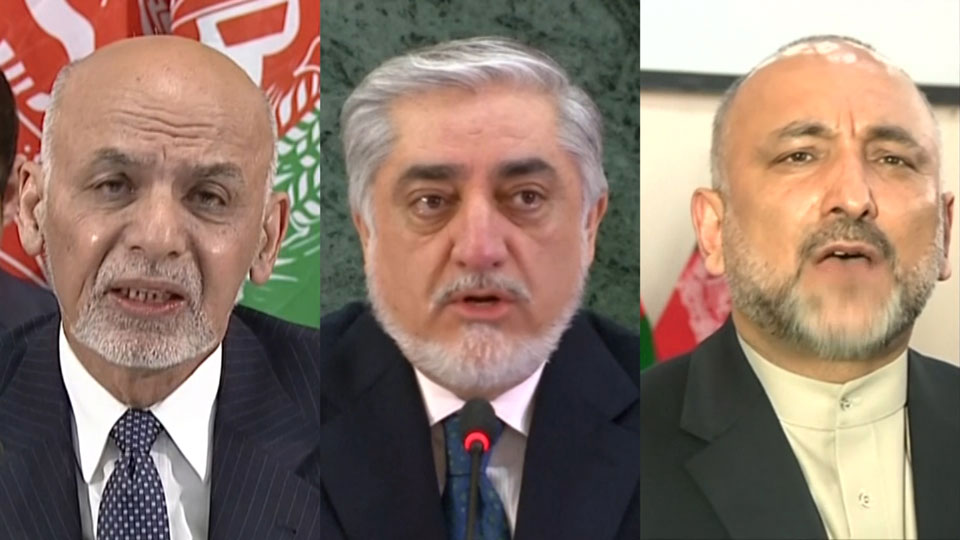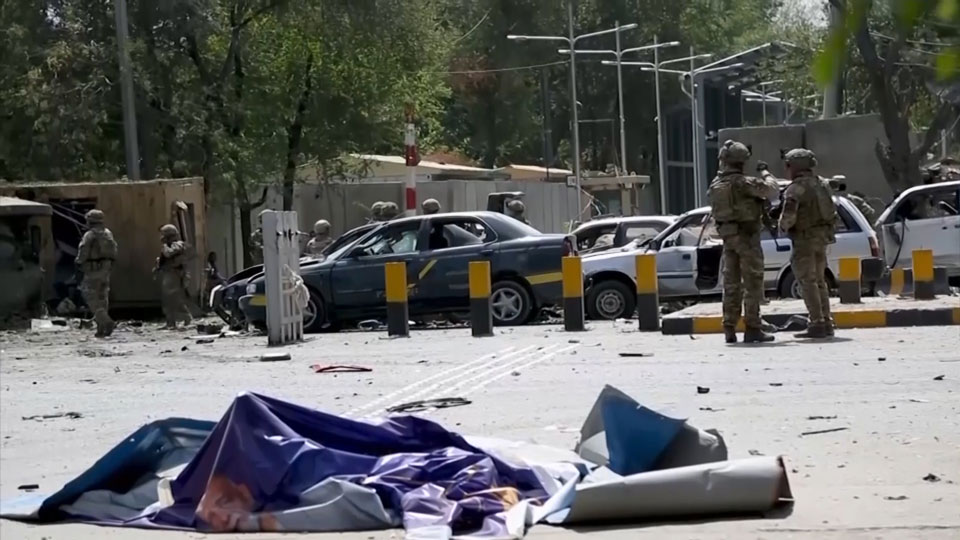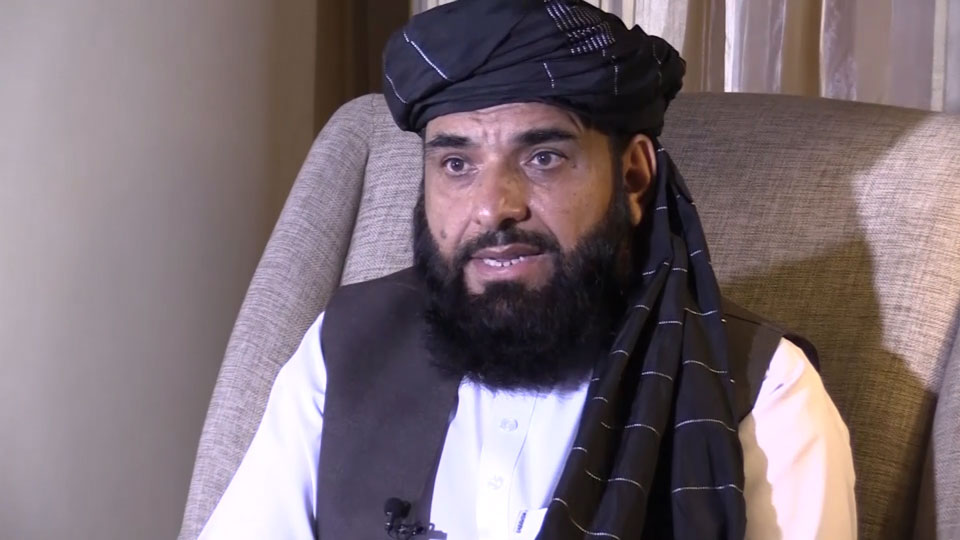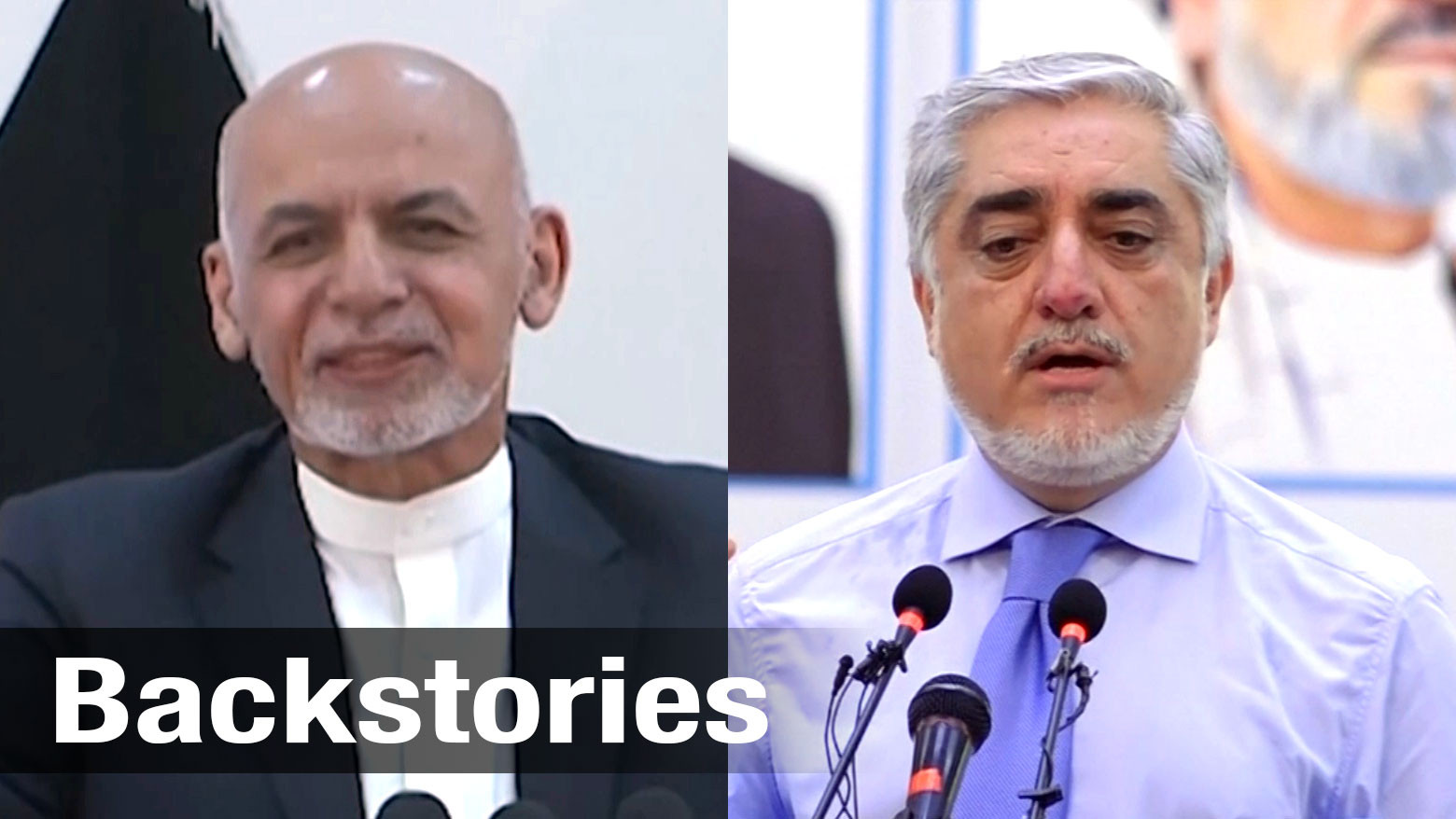Who is running?
Afghanistan holds a presidential election every five years. This is the fourth such election since the Taliban regime collapsed in 2001. Eighteen people initially announced their candidacies, including incumbent Ashraf Ghani, Chief Executive Abdullah Abdullah, who holds the number two position in government, and former national security advisor Mohammad Haneef Atmar. The focus on security was expected to help Atmar, but he dropped out of the running and left it effectively a two-horse race between Ghani and Abdullah.

President Ghani belongs to the majority Pashtun ethnic group and once worked for the World Bank. He served as finance minister in the administration of former President Hamid Karzai.
Abdullah has a Pashtun father and minority Tajik mother. He was a leading figure in the former Northern Alliance that fought the Taliban. He was foreign minister in the Karzai administration.
Five years ago, Ghani and Abdullah fought a run-off election. Allegations of large-scale vote-rigging led the US to intervene. After all the votes were recounted, Ghani was elected president for the first time.
This time, with the Taliban just one of the groups carrying out terror attacks, all candidates say security is their top priority. Ghani says he plans to rely on a combination of armed force and dialogue with the Taliban. Abdullah says Ghani has allowed security conditions to deteriorate and hasn't done enough to control the Taliban.
Deteriorating security
Since the majority of the US-led international forces withdrew from Afghanistan in 2014, the Taliban have been regaining strength. The extremist Islamic State group has also been gaining power and battling local security forces. Officials say, as of July this year, less than 60% of the country is under the Afghan government's control.
According the United Nations, more than 3,800 civilians were killed in terror attacks in 2018. That's the highest figure since they began keeping track in 2009.
The US military is training local security forces, but it hasn't been as effective as they hoped at preventing terrorism. The US Special Inspector General for Afghanistan says the US government wasn't prepared to conduct a training programs of the size and scope required there.

Suspended US-Taliban peace talks
The US has been in Afghanistan for 18 years now. Last year, Washington began peace negotiations with the Taliban, and the two sides almost reached the agreement on issues such as a partial withdrawal of the US military.
In an exclusive interview with NHK, Suhail Shaheen, a Taliban spokesperson who took part in the peace negotiations, said the two sides only needed to sign the document to finalize the accord, and a signing ceremony was going to take place in Qatar's capital, Doha. "The plan was to invite foreign ministers from 23 countries, including Japan, Russia and China," he said.
But after a car bombing by the Taliban in Kabul which killed an American soldier and more than 10 others, US President Donald Trump called off the negotiations.
Shaheen is calling for the US to resume the talks. "The US backed down from the negotiations. If they really want to solve the issue, they need to come here and resume talks," he said. "But if the US doesn't want peaceful resolutions, we have no choice but to continue our fight."

Taliban threaten to disrupt election
A preliminary election result is expected as early as October. If none of the candidates wins a majority, a run-off will be held for the top two candidates.
But the Taliban have declared they will obstruct the vote, saying the election is "nothing more than a ploy to deceive the people."
Attacks on election rallies and government facilities are threatening to undermine the vote. The Election Commission says 431 out of 5,373 polling centers will be closed on election day due to security issues. And the threat of violence is likely to hurt turnout at the stations that do open. That lower turnout, meaning a weaker mandate for the winner, is exactly what the Taliban are hoping for.

